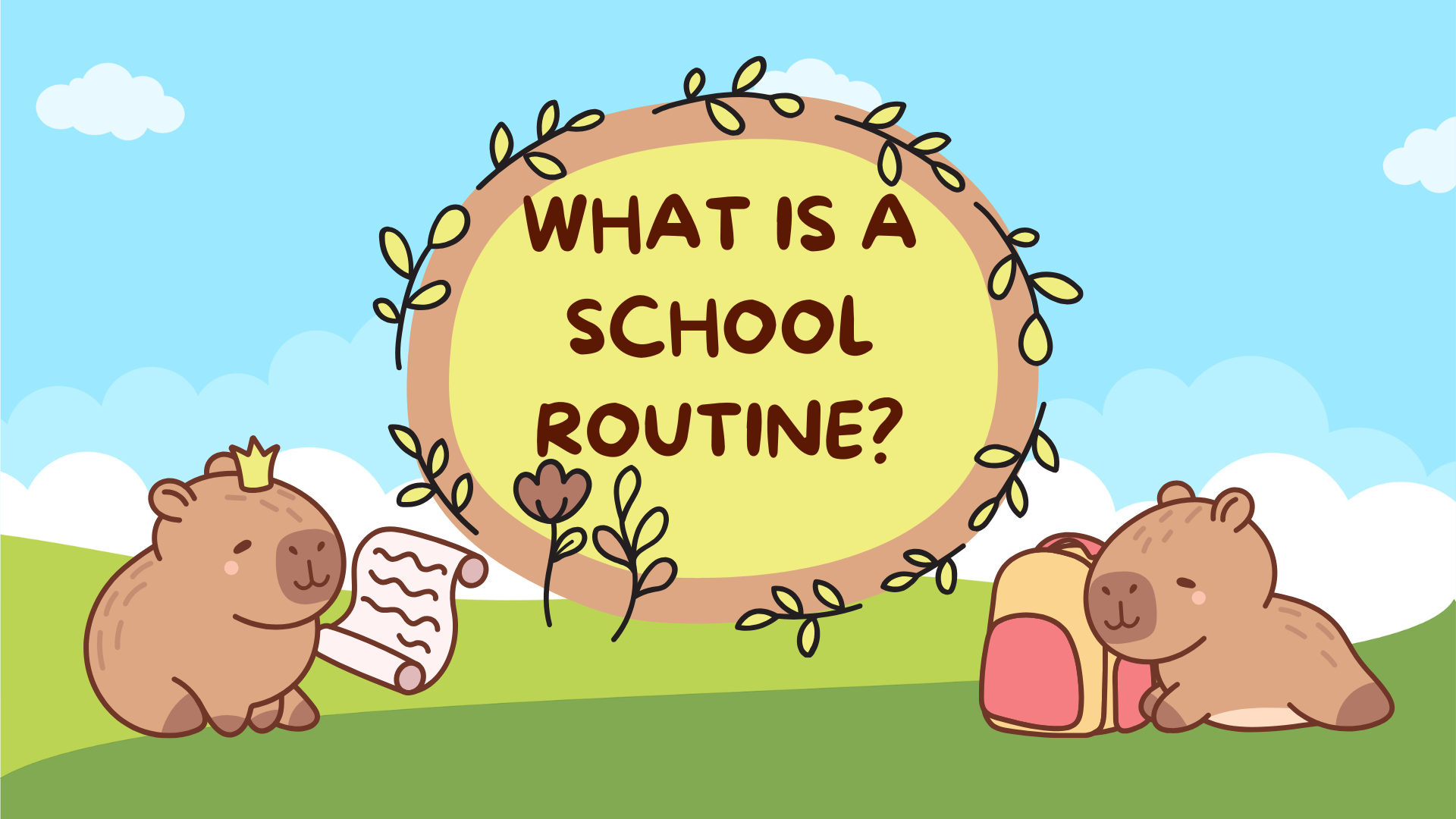
20 Moral Values for Students To Learn at School and Home
Moral values are life lessons students learn from their guardians and teachers at home and school to shape their perspective. Such lessons help them differentiate between good and bad, enabling them to decide who they want to become ultimately. These values shape their everyday lifestyle, relationship with friends and family, and behavioral patterns. Let us learn about 20 moral values for students and why they should imbibe them early in life.
Moral values for students
Moral science is a subject that students learn when they are in junior school to learn values that last a lifetime. These books come with stories that have a lesson at the end as a takeaway of what they derive from the stories they read.
How children think, behave, and react from a young age shapes their individuality when they grow older. Adults carry the same morals they learnt as kids, and that’s why it is important to teach the following list of morals and values:
1. Honesty
The foremost quality of an individual is honesty. While several short stories across literary subjects promote honesty, the true meaning is difficult to understand and imbibe.
When children are small, their innocence makes them naturally honest. A lying tongue comes from fear of repercussion after an act of mischievousness. But in such moments, when they get caught, parents and teachers need to rectify them immediately.
Acquainting a child with punishment due to a wrongful behavior is the first step to make them understand what is unacceptable. The correction towards becoming honest often comes after the first lie. But teaching them before they can utter the first lie can prevent such behavior and help them grow strong morals.
2. Gratitude
Children often don’t realize how hard it is to cater to the basic necessities of life. Until one earns a living, they do not know how it feels to pay rent, buy food, and other necessities. Children need to be taught how provisions are created to grow a sense of gratitude for what they already possess. Thankfulness and gratitude are a practice and important values to learn early in life.
3. Respect
Most Indian households never fail to teach children to respect elders. It shapes how they behave when they meet relatives and acquaintances. But respect should be equal for all animate and inanimate objects to understand the value each element creates in our lives.
The friends they grow up with, the books they bring to school, and the pencils they sharpen and use all deserve respect. If respect becomes selective, then they will differentiate between people based on their color, background, caste, and so on.
4. Courage
Growing risk-taking abilities from a young age make us courageous. Courage comes from facing challenges that make us feel scared. Physical education and sports are ways to encourage children to engage in activities that challenge them. Once they know what it feels like to fall or to get hurt, every action thereafter will test their courage.
5. Equality
Children don’t differentiate between people, gender, class, caste, and other significations that easily catch the attention of an adult mind. They imbibe the traits they experience from their surroundings. Equality is a quality that needs to be taught to eradicate the feeling of supremacy. The right examples can only be set by adults who follow the same values.
6. Justice
Teaching the difference between right and wrong is the first step to understanding justice. Punishment or repercussion of wrong actions helps children become acquainted with unacceptable behavior. Being just is one of the most important moral values for students that helps them differentiate and stand up for what is right.
7. Sharing
Sharing is an excellent value that grows a community-building approach among students from a young age. Parents and teachers can encourage sharing during playtime or recess so students share their toys and eat together. It grows empathy when an individual happily gives away what they have to bring joy to another. Even during class, two students can share one book while the teacher is teaching to grow the sense of togetherness.
8. Tolerance
Tolerance makes a person respectful towards others that they might not like or agree with. Patience, mindfulness, and respect are all virtues that make an individual tolerant. There are times when we experience feelings of disappointment and hurt from other people around us. But how we react to their behavior sets an example of our character.
9. Compassion
Compassion comes from empathy when a child acknowledges and feels pain towards something or someone. It is an emotion of concern that pushes them to take charge of someone’s happiness or care about their feelings.
10. Humility
Competitiveness gets ingrained into the lives of students as they grow up around others preparing for similar goals. Teaching them the value of humility reduces their tendency to think of themselves as superior. It is a lifelong trait that teaches them to put their head down and work hard irrespective of successes and failures.
11. Cooperation
Out of 20 moral values for students, cooperation is one of the most crucial skills to develop. A cooperative person makes life easy for everyone around. Their focus is on growing together by extending a helping hand. Cooperation begins from home, where they lend a helping hand to do household chores, and it begins from school when they lend their favorite pencil to a friend who brought none. It is a sense of understanding the importance of “we” rather than prioritizing “me.”
12. Acceptance
Acceptance is one of the hardest values, and many adults lack this ability. The easiest way to grow acceptance is to make children realize that perspectives differ from one to another. People not agreeing with each other makes space for critical thinking and widens our intellect. It is one of the smartest ways to grow acceptance towards others’ beliefs, while staying true to your own.
13. Responsibility
Parents share their struggles and responsibilities of making a living and maintaining a household to teach children what their role is. Growing a sense of responsibility starts as early as toddlerhood. A simple act of keeping toys back at the same place they were taken teaches them responsibility. As they grow older, they realize studying is a responsibility for which they go to school.
14. Self-control
Self-control helps respond and not react to situations that seem to go against them. It is a behavioral value that reduces impulsive actions and anger. Controlling words, actions, and behavior irrespective of how they feel and articulating them calmly is a virtue that takes time. How parents behave in situations that are tough for them to channelize paves the way for what the child learns.
15. Patience
Patience is a quality to wait without angst and aggression. Out of 20 moral values for students, patience could be the toughest to convey and ingrain in a child. Many adults fail to be patient, especially during hard times, because we live in an era where we’re used to getting everything instantly. Mindfulness, acceptance, and control are all values that cultivate the power of patience.
16. Loyalty
Loyalty is a virtue to stay true to oneself and the people around. It makes a person faithful and reliable, and their actions reflect why they are trustworthy. Children can learn loyalty by encouraging positive behavior towards their friends, parents, and teachers. Their commitment towards studies also reflects their loyalty towards what their parents and teachers provide for their personal development.
17. Confidence
Confidence comes from the environment where a child is supported by parents and teachers. It is a feeling that doesn’t come naturally to all and often requires validation. The encouragement they feel when someone applauds their efforts, celebrates their victories, and promotes repetitive practice during failures grows confidence.
18. Empathy
Empathy is understanding how others feel, and ingraining this value among children helps them count their blessings. Many times, children take what they receive for granted, not realizing that there are underprivileged children of similar ages who lack the same. Empathy teaches them to value everything they possess, be thankful for what they get, and feel compassionate towards their surroundings.
19. Reliability
Reliability fosters dependency among children where they realize they need to be responsible regarding certain aspects of their lives. The value stems from trust and safety. One cannot teach reliability, but can become a role model that is responsible, independent, and manages a lifestyle that children look up to. Reliability for a child is watching their parents schedule the lives of their children while they have responsibilities of their own. When children watch how their parents work, manage a home, take them to school, keep them secure, they understand what it takes to become reliable.
20. Commitment
Commitment is an act of promising to deliver or stand by an agreement, which can be both professionally attested and personally understood. It is a dedication when the person who commits shows willingness towards what they are expected to do.
Commitment to studies and extracurriculars is a pledge made towards teachers and parents. But to expect commitment and dedication, they first need to understand the importance of literacy and the necessity associated with their growth.
Becoming role models of good morals
The traits exhibited by guardians, teachers, and parents are the ones young children imitate, replicate, and imbibe. To ensure they absorb the best of 20 moral values for students, the elders need to set examples they can look up to. How parents behave among themselves, the environment of a household, matters a lot when considering behavioral patterns that shape up. The formative years are the ones when they can be molded, grounded, and cared for the most.







